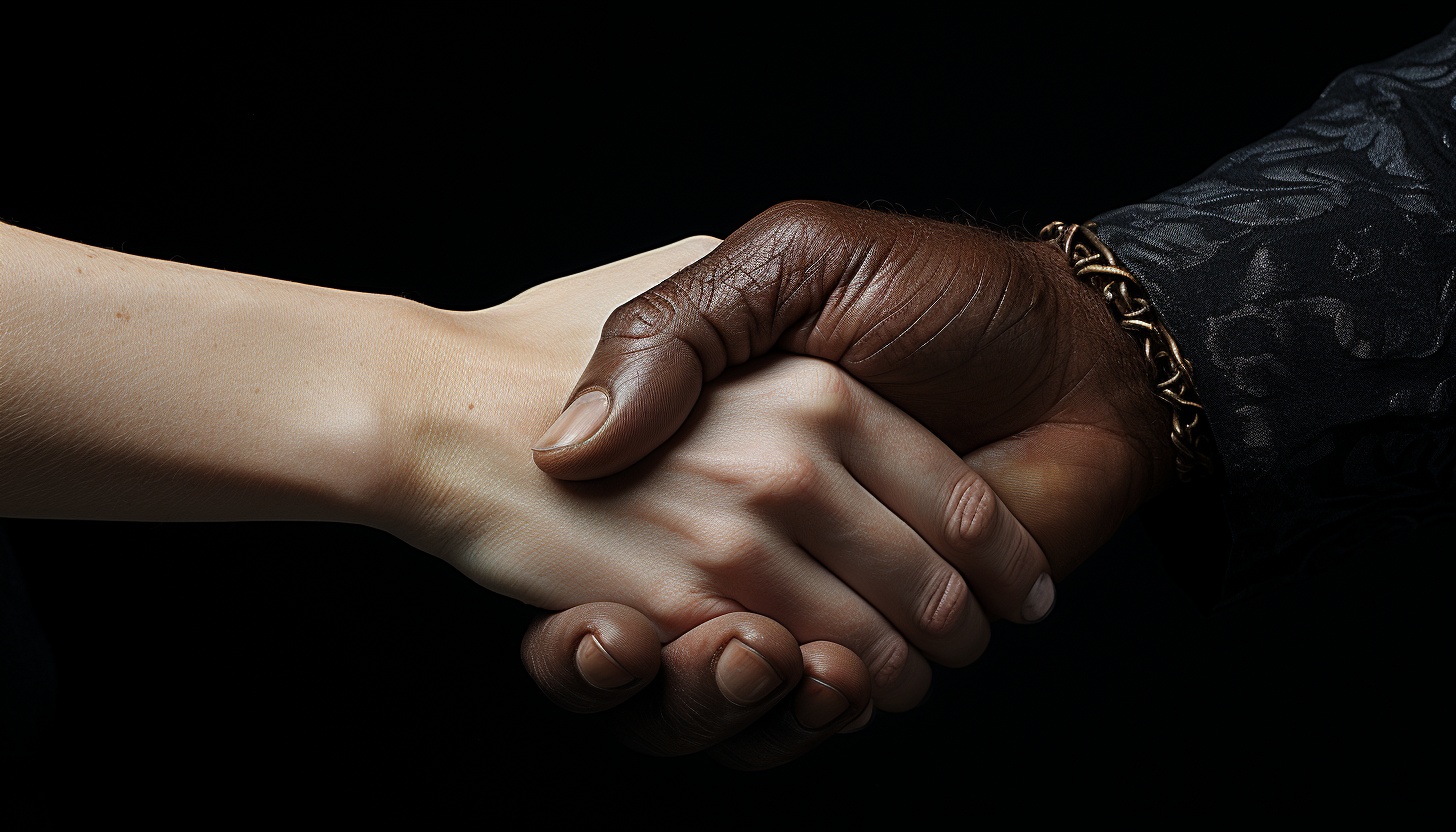
Unveiling the Secrets of Successful Matchmaking
Did you know that nearly 50% of marriages in the United States end in divorce? Finding a compatible partner is no easy feat, but with the right tools and insights, you can unlock the secrets of successful matchmaking.
In this article, we will delve into the world of relationships, offering you valuable advice on understanding compatibility, effective communication, building trust, navigating differences, and cultivating a lasting connection.
Get ready to embark on a journey towards fulfilling and harmonious relationships.
Understanding Compatibility

Understanding compatibility is crucial in successful matchmaking, as it often determines the long-term satisfaction and harmony of a relationship. When it comes to finding your perfect match, compatibility goes beyond superficial similarities. It delves into the deeper aspects of who you’re as a person, your values, beliefs, and goals.
Compatibility is about finding someone who complements you, someone who understands and appreciates your quirks, and shares your interests and passions. It’s about finding someone who supports and encourages you to become the best version of yourself.
Compatibility isn’t about finding someone who’s exactly like you, but rather someone who balances you out. It’s about finding someone who challenges you, pushes you to grow, and helps you see things from different perspectives. It’s about finding someone with whom you have a strong emotional and intellectual connection.
To truly understand compatibility, it’s important to take the time to reflect on your own needs and desires. What’re your deal breakers? What’re your non-negotiables? By knowing yourself and what you want in a partner, you can better recognize compatibility when you see it.
Effective Communication Strategies

To ensure successful matchmaking, employ three key effective communication strategies:
1. Active listening: Communication is a two-way street, and active listening is crucial for understanding your partner’s needs, desires, and concerns. Show genuine interest by maintaining eye contact, nodding, and providing verbal cues. This will create a safe and open space for effective communication.
2. Clear and concise language: Avoid unnecessary jargon and use simple, straightforward language to express your thoughts and feelings. Clear communication helps prevent misunderstandings and ensures that both parties are on the same page. Be mindful of your tone and body language, as they can impact how your message is received.
3. Empathy and understanding: Put yourself in your partner’s shoes and try to understand their perspective. Validate their emotions and show empathy towards their experiences. This will foster a deeper connection and build trust in your relationship. Remember, effective communication isn’t just about expressing yourself; it’s also about understanding and connecting with your partner.
Building Trust and Mutual Respect

Develop a strong foundation of trust and mutual respect by consistently demonstrating honesty and reliability in your relationship. Trust is the bedrock of any successful partnership, and it requires effort and commitment from both parties. Be open and transparent in your communication, sharing your thoughts and feelings honestly. Avoid keeping secrets or withholding information, as this can erode trust over time. Instead, strive for transparency and authenticity, even when it may be difficult or uncomfortable.
Reliability is another key component of building trust and mutual respect. Show up for your partner consistently and follow through on your commitments. Be dependable and reliable in your actions, as this will demonstrate your dedication and reliability. It’s important to be there for your partner in times of need and to be a reliable source of support.
Mutual respect is also essential for a healthy and successful relationship. Treat your partner with kindness, empathy, and understanding. Validate their feelings and opinions, even if you may not agree with them. Avoid belittling or disrespecting your partner, as this can damage the trust and respect in your relationship. Instead, focus on building each other up and celebrating each other’s successes.

Building a successful relationship requires effectively navigating differences and conflict. It’s inevitable that you and your partner will have different opinions, beliefs, and values. Conflict is bound to arise when these differences clash. However, by approaching these challenges with empathy and open-mindedness, you can strengthen your bond and create a harmonious partnership.
Here are three strategies to help you navigate differences and conflict:
1. Communication is key: Open and honest communication is crucial in resolving conflicts. Take the time to actively listen to your partner’s perspective and share your own thoughts and feelings without judgment. This will foster understanding and create a safe space for constructive dialogue.
2. Find common ground: Focus on finding common interests and values that you both share. By highlighting shared goals and aspirations, you can bridge the gap between your differences and find compromise. Remember that you’re a team, and working together towards common goals will strengthen your relationship.
3. Practice empathy and understanding: Put yourself in your partner’s shoes and try to see things from their perspective. Empathy allows you to cultivate compassion and understanding, which can help you navigate conflicts with more patience and respect. Remember, it’s not about winning or losing, but about finding a solution that works for both of you.
Cultivating a Lasting Connection

To cultivate a lasting connection with your partner, it’s important to consistently nurture and prioritize your relationship. Building a strong and lasting bond requires effort and dedication from both partners.
One key aspect of cultivating a lasting connection is effective communication. Take the time to truly listen to your partner, express your thoughts and feelings openly, and be willing to compromise. This will foster a sense of understanding and mutual respect, allowing your connection to deepen and grow.
Another important aspect of cultivating a lasting connection is spending quality time together. In our busy lives, it’s easy to get caught up in work and other responsibilities. However, making time for each other is crucial. Plan regular date nights, engage in shared activities, and create meaningful memories together. These moments of connection and shared experiences will strengthen the bond between you.
Additionally, it’s important to show appreciation for your partner. Express gratitude for the small things they do, acknowledge their efforts, and remind them of your love and affection. Small gestures of kindness and affection can go a long way in nurturing your connection.
Conclusion
In conclusion, successful matchmaking is like a delicate dance, where understanding compatibility, effective communication, building trust and respect, navigating differences and conflict, and cultivating a lasting connection all come together harmoniously.
Just like a symphony, it requires the right balance and coordination of these elements to create a beautiful and fulfilling relationship.
So, take these secrets to heart and embark on your own journey of finding love, knowing that with the right steps, you can create a masterpiece of lasting happiness.






